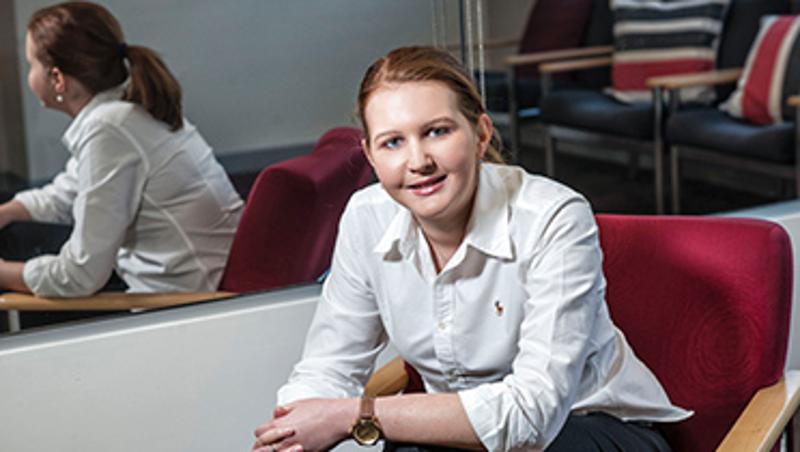
Adults with bulimia nervosa and who have experienced trauma like bullying, physical or sexual assault are invited to participate in a revolutionary new therapy devised by QUT’s School of Psychology and Counselling.
Provisional psychologist and professional doctorate researcher Katie Vivian is seeking people to undergo Memory Reconsolidation Therapy and said the impact of trauma that can trigger eating disorders was similar to that of Post Traumatic Stress Disorder (PTSD).
“The patients we see have symptoms of PTSD or meet the full criteria for PTSD as well as meeting the criteria for bulimia nervosa,” Ms Vivian said.
“From research over the past decade we now understand a high proportion of people with bulimia nervosa have also experienced some form of trauma through sexual, physical or emotional abuse.
“Memory Reconsolidation Therapy aims to help individuals manage traumatic memories and ‘reduce the fear’ associated with the memories. We have had some good early results in reducing trauma symptoms and improving eating behaviour.
"Memories are commonly thought to be quite stable but they are actually susceptible to change. Our therapy sessions, which are free, look to reduce the impact and distress of fear memories.”
Ms Vivian said when a person experiences trauma, the fear memory associated with it is very strong and can continue to haunt them for many years.
“When you have experienced a traumatic event it is associated strongly with fear, and is difficult for the individual to process and make sense of. Some people are affected on a daily basis and that might be through flashbacks, anxiety, or a feeling of always being on alert,” she said.
"It is thought that for some individuals the fear memories may play a role in maintaining the symptoms of bulimia nervosa, including binge eating episodes."
Participants in the therapy are offered 12-16 private, safe and controlled therapy sessions at the QUT Kelvin Grove Campus.
"Most people understandably want to avoid horrible memories," Ms Vivian said.
"Some traditional therapeutic approaches are a bit like throwing a blanket over that original fear memory. However many people find that down the track the blanket slips off and the trauma of the memory returns.
"Our therapy is not trying to block out a memory, but alter the fear associated with it. We go through the memory until the intense fear that was once associated with the memory is reduced."
One of Ms Vivian’s patients found the treatment a very positive experience.
“Having completed the therapy I’m pretty proud of what I’ve faced. It was challenging but I feel a sense of accomplishment and I’m now looking forward to the future,” she said.
“Now, I feel like I have what it takes to deal with the traumatic memories and process them instead of putting them in a box and trying to keep them hidden away, and I think that’s really important.
“I’ve learned to have more compassion towards myself. I feel that I’ve learned more about myself, how the past has shaped the present and how I can grow from that.”
It’s that kind of feedback that reinforces the importance of the therapy to Ms Vivian.
“It has been a privilege for me to complete research in this area and have the opportunity to deliver our new therapy to patients and see firsthand the positive impact it has on their well-being,” she said.
For more information or to take part in the therapy, please contact the research team for details:
Katie Vivian, Katie.vivian@connect.qut.edu.au
Dr Esben Strodl, 07 3138 8416, e.strodl@qut.edu.au
Media contact:
Amanda Weaver, QUT Media, 07 3138 1841, amanda.weaver@qut.edu.au
After hours: Rose Trapnell, 0407 585 901, media@qut.edu.au


